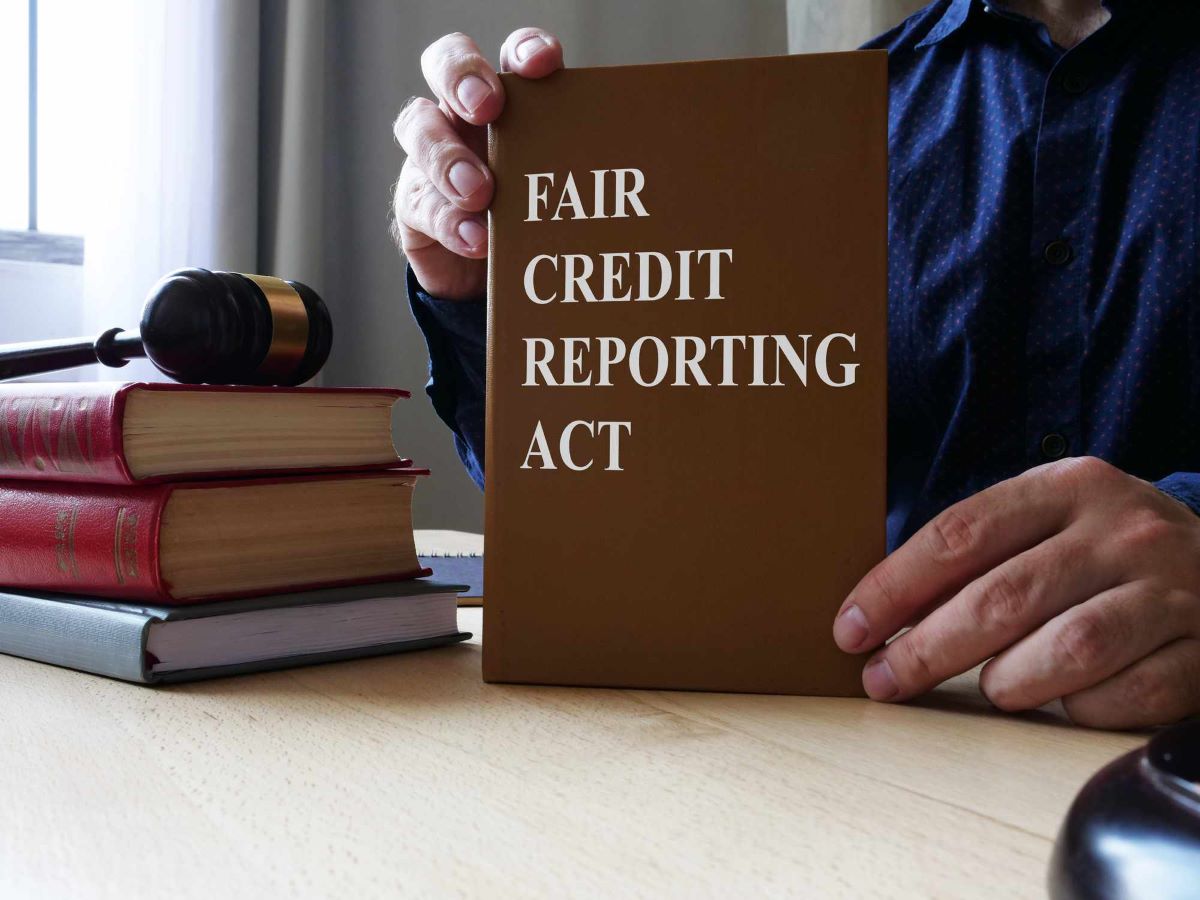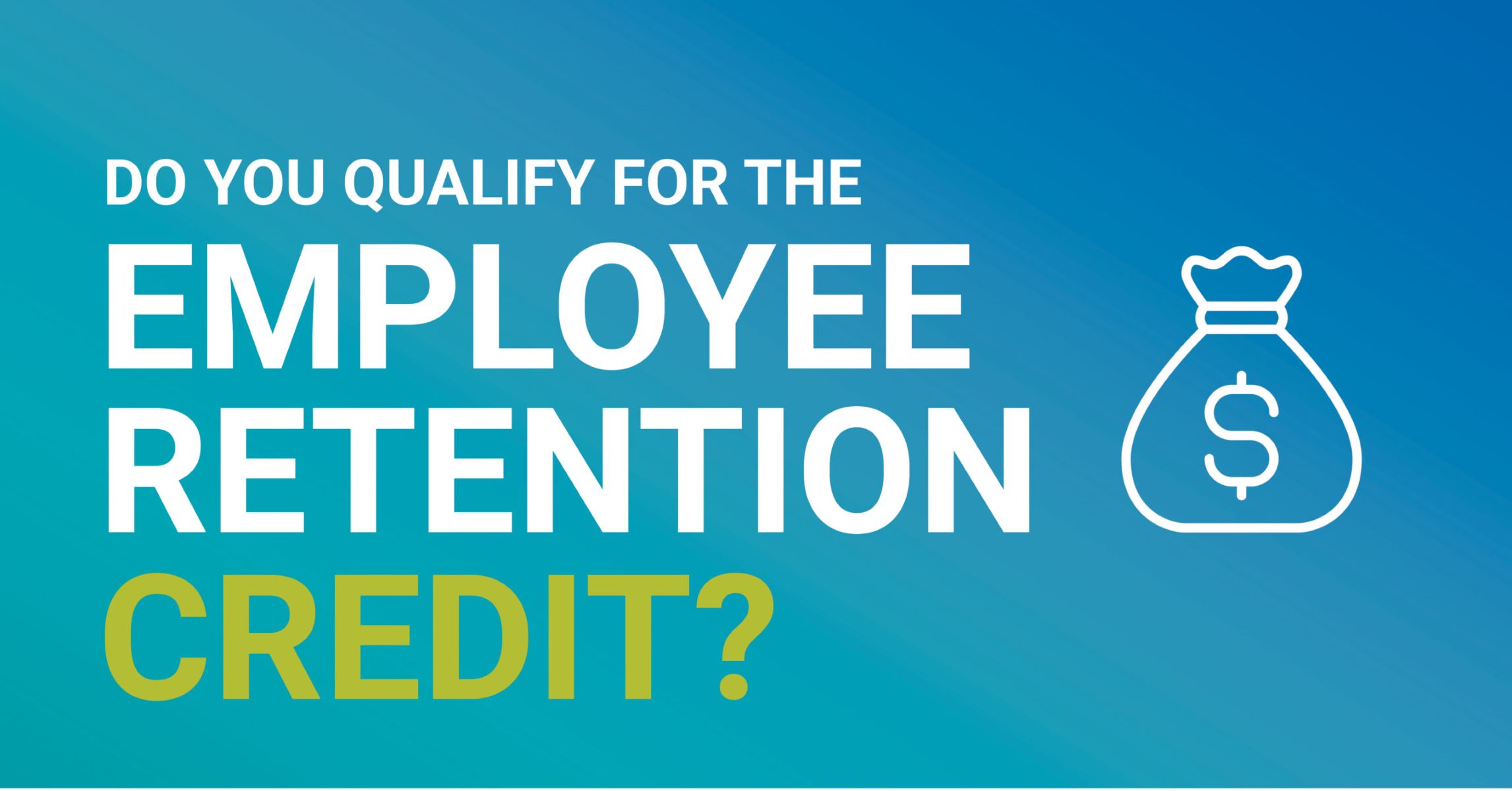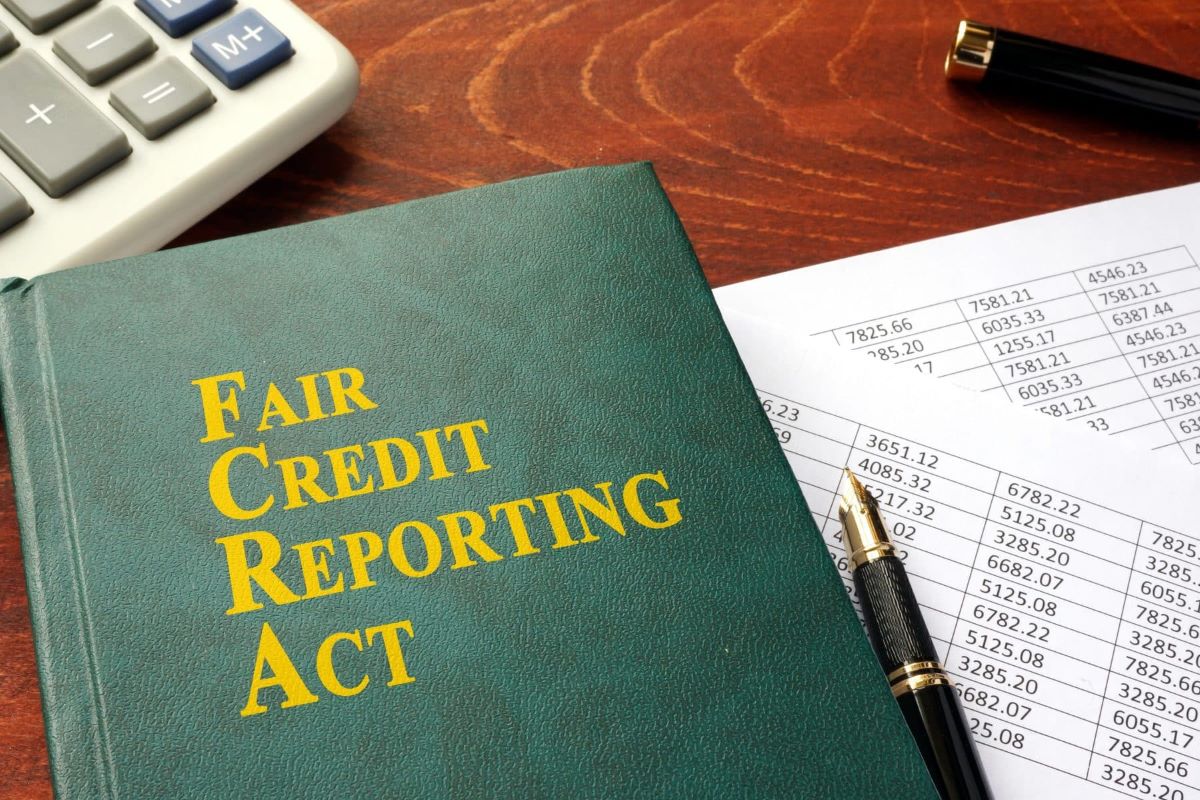Home>Finance>Section 611 Of The Fair Credit Reporting Act States What


Finance
Section 611 Of The Fair Credit Reporting Act States What
Published: January 4, 2024
Learn about Section 611 of the Fair Credit Reporting Act, which outlines the provisions related to finance and credit reporting.
(Many of the links in this article redirect to a specific reviewed product. Your purchase of these products through affiliate links helps to generate commission for LiveWell, at no extra cost. Learn more)
Table of Contents
- Introduction
- Section 611 of the Fair Credit Reporting Act
- Purpose of Section 611
- Rights and Responsibilities of Consumers
- Disclosures by Consumer Reporting Agencies
- Timeline for Dispute Resolution
- Investigations by Consumer Reporting Agencies
- Reinvestigations by Consumer Reporting Agencies
- Duties of Furnishers of Information
- Relation to State Laws
- Conclusion
Introduction
The Fair Credit Reporting Act (FCRA) is a federal law enacted in 1970 to protect consumers’ rights and regulate the collection, accuracy, and use of information in their credit reports. This act is designed to promote fair and accurate reporting practices by consumer reporting agencies (CRAs), ensuring that the information they provide is reliable and doesn’t harm consumers’ opportunities for credit, employment, insurance, or housing.
Section 611 of the FCRA specifically addresses the procedures for consumers to dispute inaccurate or incomplete information in their credit reports. It outlines the rights and responsibilities of consumers, the obligations of CRAs, and the timeframe for resolving disputes. Understanding Section 611 is vital for consumers who want to rectify errors on their credit reports and protect their financial reputation.
In this article, we will delve deeper into the details of Section 611 of the Fair Credit Reporting Act, exploring its purpose, the rights and responsibilities of consumers, the disclosure requirements of CRAs, the timeline for dispute resolution, and the duties imposed on furnishers of information.
Section 611 of the Fair Credit Reporting Act
Section 611 of the Fair Credit Reporting Act (FCRA) focuses specifically on the procedures for consumers to dispute inaccurate or incomplete information in their credit reports. It establishes guidelines and obligations for both consumers and consumer reporting agencies (CRAs) to ensure the prompt and accurate resolution of disputes.
Under Section 611, consumers have the right to request investigations into any inaccuracies or incomplete information in their credit reports. This section outlines the specific steps that must be followed by both the consumers and the CRAs throughout the dispute resolution process.
First and foremost, consumers are required to notify the CRA in writing about the information they believe is inaccurate or incomplete. The written notification, commonly referred to as a dispute letter, should clearly identify the disputed item(s) and provide any supporting documentation or evidence.
Upon receiving a dispute notice from a consumer, the CRA is obligated to conduct a reasonable investigation to determine the accuracy and completeness of the information in question. They must review all relevant information provided by the consumer and investigate the dispute with the entity that provided the information (known as the furnisher of information) to ensure its accuracy.
If the CRA determines that the disputed information is indeed inaccurate or incomplete, they are required to promptly modify, delete, or permanently block it from the consumer’s credit report. They must also notify the consumer in writing about the changes made to their credit report.
However, if the CRA believes that the information is accurate and complete based on their investigation, they are not obligated to change it in the consumer’s credit report. In such cases, the consumer has the right to request a reinvestigation. The CRA must conduct a subsequent investigation, re-review the relevant documents and evidence provided by the consumer, and arrive at a final decision.
Section 611 of the FCRA also outlines the responsibilities of the furnishers of information. These entities, such as banks, credit card companies, or lending institutions, are required to investigate any disputed information provided to them by the CRAs. If the information is found to be inaccurate or incomplete, the furnishers must report the correct information to the CRAs and modify the consumer’s credit report accordingly.
Understanding Section 611 is essential for consumers who want to rectify errors on their credit reports or address incomplete or misleading information. By familiarizing themselves with the guidelines and procedures outlined in this section, consumers can effectively navigate the dispute resolution process and safeguard their creditworthiness.
Purpose of Section 611
Section 611 of the Fair Credit Reporting Act (FCRA) serves an important purpose in protecting the rights of consumers and ensuring the accuracy and integrity of their credit reports. This section establishes the procedures and guidelines for consumers to dispute inaccurate or incomplete information found in their credit reports.
The primary objective of Section 611 is to provide consumers with a mechanism to correct any errors on their credit reports that may have a negative impact on their creditworthiness. Inaccurate or incomplete information in a credit report can lead to denials of credit applications, higher interest rates on loans, difficulties in securing employment, and even challenges in finding suitable housing.
By allowing consumers to challenge and dispute such information, Section 611 aims to restore the accuracy and fairness of their credit reports, providing them with the opportunity to present a true representation of their financial history and creditworthiness to potential lenders, employers, and other entities.
Another important purpose of Section 611 is to ensure that consumer reporting agencies (CRAs) conduct thorough and prompt investigations into consumers’ disputes. CRAs play a crucial role in maintaining accurate credit information, as their reports are widely used by creditors, employers, landlords, and others to assess an individual’s creditworthiness.
Through the guidelines set forth in Section 611, consumers have the right to challenge the information provided by CRAs, and the CRAs are obligated to conduct a reasonable investigation to verify the accuracy and completeness of the disputed information. This encourages CRAs to maintain accurate records and respond promptly to consumer disputes, protecting the interests of consumers and promoting fair lending and hiring practices.
Furthermore, by placing responsibilities on furnishers of information, Section 611 also ensures that the entities providing data to CRAs – such as banks, credit card companies, and other financial institutions – take active measures to investigate and correct any disputed information. This helps maintain the integrity of the credit reporting system and promotes accurate reporting by all entities involved.
In summary, the purpose of Section 611 is to empower consumers to challenge and correct inaccurate or incomplete information in their credit reports, hold CRAs accountable for conducting thorough investigations, and encourage furnishers of information to provide accurate and complete data. By doing so, this section contributes to fair lending practices, protects consumers’ interests, and maintains the credibility of credit reporting systems.
Rights and Responsibilities of Consumers
Section 611 of the Fair Credit Reporting Act (FCRA) outlines the rights and responsibilities of consumers when it comes to disputing inaccurate or incomplete information in their credit reports. Understanding these rights and responsibilities is essential for individuals who want to rectify errors and ensure the accuracy of their credit information.
Rights of Consumers:
- Right to request a dispute: Consumers have the right to notify consumer reporting agencies (CRAs) in writing about any inaccurate or incomplete information in their credit reports. This written notification, commonly known as a dispute letter, should clearly identify the disputed items and provide any relevant supporting documents or evidence.
- Right to a prompt investigation: Once a consumer files a dispute, the CRA must conduct a reasonable investigation within a specified timeframe. This investigation involves reviewing the consumer’s evidence, contacting the furnisher of the information, and verifying the accuracy and completeness of the disputed items.
- Right to a free credit report: If the consumer submits a dispute and the CRA makes a change to their credit report, they have the right to request a free copy of their updated report. This allows consumers to review and ensure that the corrections have been accurately reflected.
- Right to information about the investigation: The CRA is required to provide the consumer with written notice of the results of the investigation. If the dispute results in a change to the consumer’s credit report, the CRA must also provide them with a written notice containing the updated information.
- Right to request a reinvestigation: If a consumer disagrees with the CRA’s investigation results, they have the right to request a reinvestigation of their dispute. The CRA must conduct a subsequent investigation and reconsider the relevant information provided by the consumer before reaching a final decision.
Responsibilities of Consumers:
- Provide accurate and complete information: When reporting a dispute, consumers have the responsibility to accurately identify the disputed items and provide any supporting documentation or evidence necessary to support their claim.
- Keep copies of all communications: It is important for consumers to retain copies of all correspondence, including the dispute letter, any responses from the CRA or furnishers of information, and any supporting documentation provided. These records serve as evidence in case of any discrepancies or disputes.
- Respond promptly to requests for additional information: During the investigation process, the CRA or furnisher of information may request additional documentation or evidence from the consumer to support their dispute. It is the consumer’s responsibility to respond promptly and provide the requested information to facilitate the investigation process.
- Review credit reports regularly: Consumers should regularly review their credit reports from the major CRAs to identify any inaccuracies or incomplete information. By monitoring their credit reports, individuals can quickly identify potential errors and take appropriate action to dispute and correct them.
- Review investigation results carefully: After receiving the results of the investigation, it is the consumer’s responsibility to review the findings carefully. If the dispute was resolved in their favor, they should ensure that the corrections have been accurately reflected in their credit reports.
By being aware of their rights and responsibilities, consumers can effectively navigate the dispute resolution process, rectify errors on their credit reports, and safeguard their financial reputation.
Disclosures by Consumer Reporting Agencies
Consumer reporting agencies (CRAs) play a vital role in providing credit reports, which are used by lenders, employers, landlords, and other entities to assess an individual’s creditworthiness. Section 611 of the Fair Credit Reporting Act (FCRA) establishes specific requirements for CRAs regarding the disclosure of information to consumers and the accuracy of the data they report.
Disclosures to Consumers:
CRAs are obligated to provide consumers with certain disclosures related to their credit reports and the dispute resolution process:
- Initial disclosure: When a consumer requests their credit report, the CRA is required to provide them with a notice that includes their right to dispute inaccurate information and the process for doing so. This notice must also provide the consumer with the contact information of the relevant furnisher(s) of the disputed information.
- Notice of consumer’s dispute: If a consumer files a dispute with the CRA, they are responsible for notifying the furnishers of information about the dispute. The CRA must provide consumers with a notice containing the relevant contact information for the furnishers to facilitate direct communication between the parties.
- Notice of results of investigation: Once the investigation is complete, the CRA must inform the consumer of the results in writing. This notice should include the outcome of the investigation, any changes made to the credit report, and a statement explaining the consumer’s rights to request a reinvestigation if they remain dissatisfied with the results.
- Reinvestigation disclosure: If a consumer requests a reinvestigation after disputing inaccurate information, the CRA is required to disclose the results of the reinvestigation within five business days of completing the process. This disclosure should include any changes made to the consumer’s credit report and a statement informing the consumer of their rights to add a statement of dispute to their file.
Accuracy of Reported Information:
CRAs have a responsibility to ensure the accuracy and completeness of the information they report to potential users of credit reports:
- Verification of information: Before including information in a consumer’s credit report, the CRA is responsible for implementing reasonable procedures to verify the accuracy of the information with the furnishers. This involves maintaining strict protocols to avoid reporting inaccurate or incomplete information.
- Correcting or deleting inaccurate information: If a consumer notifies the CRA about any inaccuracies or incomplete information in their credit report, the CRA must conduct a reasonable investigation to determine the veracity of the disputed items. If the information is found to be incorrect, the CRA is responsible for promptly modifying, deleting, or permanently blocking it from the consumer’s credit report.
- Removing outdated information: CRAs are required to remove outdated information from consumers’ credit reports. In most cases, negative information (such as late payments or bankruptcies) can only remain on a credit report for a specified period, typically seven to ten years.
These disclosure requirements and accuracy standards imposed on CRAs by Section 611 contribute to the fairness and integrity of the credit reporting process. Consumers can rely on these regulations to access accurate credit reports and address any discrepancies that may affect their financial opportunities.
Timeline for Dispute Resolution
Section 611 of the Fair Credit Reporting Act (FCRA) establishes a clear timeline for the resolution of disputes between consumers and consumer reporting agencies (CRAs) regarding inaccurate or incomplete information in credit reports. The timeline ensures that consumers have a reasonable and timely opportunity to rectify errors and maintain the accuracy of their credit information.
Initial Resolution:
Once a consumer files a dispute with a CRA, the FCRA mandates that the CRA must complete its investigation within 30 days, starting from the date they receive the consumer’s notice. During this time, the CRA is responsible for conducting a reasonable investigation into the accuracy and completeness of the disputed information.
Upon completing the investigation, the CRA must provide the consumer with written notice of the results. If the dispute is resolved in favor of the consumer, the CRA is required to make the necessary changes to the credit report and notify the furnisher of the corrected information. The CRA must also provide the consumer with a free copy of their updated credit report.
Reinvestigation Request:
If the consumer is dissatisfied with the results of the initial investigation, they have the right to request a reinvestigation. The FCRA states that the CRA must conduct the reinvestigation within another 30-day period. During this time, the CRA will re-review the relevant evidence and documentation provided by the consumer and reconsider their decision.
Upon completing the reinvestigation, the CRA must provide the consumer with written notice of the results. If the dispute is resolved in favor of the consumer, the CRA must make the necessary updates to the credit report and provide the consumer with another free copy of their updated report.
Extended Timeline for Identity Theft:
When a consumer has been a victim of identity theft, the FCRA extends the timeline for dispute resolution. In cases where the consumer submits an identity theft report to the CRA, the CRA has 45 days instead of the usual 30 to complete their investigation. This additional time allows the CRA to conduct a thorough investigation and ensure that the consumer’s credit report reflects the correct information.
It’s important for consumers to be aware that the timeline for dispute resolution may vary in certain situations, such as when the consumer fails to provide sufficient information or if the CRA determines that the dispute is frivolous or irrelevant. In these cases, the CRA must notify the consumer of these findings within the original 30-day timeframe.
By establishing a clear timeline for dispute resolution, Section 611 of the FCRA ensures that consumers have a fair and efficient process to address inaccuracies in their credit reports. It empowers individuals to take control of their credit information and maintain the accuracy of their credit history.
Investigations by Consumer Reporting Agencies
Section 611 of the Fair Credit Reporting Act (FCRA) mandates that consumer reporting agencies (CRAs) conduct thorough investigations when consumers dispute inaccurate or incomplete information in their credit reports. These investigations aim to verify the accuracy and completeness of the disputed information and ensure that the consumer’s credit report reflects the correct data.
Responsibilities of Consumer Reporting Agencies:
When a consumer files a dispute, the CRA is responsible for several important tasks during the investigation process:
- Reviewing consumer’s dispute: Upon receiving a dispute notice from a consumer, the CRA is obligated to carefully review the dispute and assess the accuracy and completeness of the disputed information. This involves examining the relevant information and any supporting documentation provided by the consumer.
- Notifying the furnisher of the information: The CRA must promptly notify the entity that provided the disputed information, known as the furnisher of information. This notification must include all relevant information and documentation provided by the consumer to initiate the investigation.
- Conducting a reasonable investigation: The CRA is required to conduct a reasonable investigation within 30 days of receiving the consumer’s dispute. This investigation must be thorough and objective, examining all available evidence, records, and relevant documentation belonging to both the consumer and the furnisher of the information.
- Verifying and evaluating the disputed information: The CRA must verify and evaluate the accuracy and completeness of the disputed information. This may involve cross-referencing with reliable sources, contacting the furnisher to validate the information, and utilizing internal protocols and procedures to ensure the reliability of their findings.
- Notifying the consumer of the investigation results: Once the investigation is complete, the CRA is responsible for providing the consumer with written notice of the results. This notice must include information about any changes made to the consumer’s credit report as a result of the investigation and the consumer’s right to request a reinvestigation if they remain dissatisfied with the outcome.
It’s important to note that the FCRA also imposes penalties on CRAs for failing to follow reasonable procedures in ensuring the accuracy and integrity of reported information. This incentivizes CRAs to conduct thorough investigations, verify information diligently, and rectify any inaccuracies as required.
By conducting meticulous investigations, CRAs play a crucial role in protecting consumers’ creditworthiness and ensuring that their credit reports are based on accurate and reliable information. These investigations enable individuals to rectify errors, dispute misleading information, and maintain the integrity of their credit histories.
Reinvestigations by Consumer Reporting Agencies
Section 611 of the Fair Credit Reporting Act (FCRA) grants consumers the right to request a reinvestigation by consumer reporting agencies (CRAs) if they are dissatisfied with the results of the initial dispute resolution process. A reinvestigation allows the CRA to re-evaluate the disputed information and address any concerns or discrepancies raised by the consumer.
Consumer’s Right to Reinvestigation:
If a consumer disagrees with the outcome of the initial investigation, they can exercise their right to request a reinvestigation. The reinvestigation process involves the following steps:
- Consumer’s request: The consumer must notify the CRA in writing, explicitly stating their desire for a reinvestigation of the disputed information. The request should also include any additional evidence or documentation that supports the consumer’s claim.
- CRA’s duty: Upon receiving the consumer’s request for a reinvestigation, the CRA must initiate the process within 30 days. The CRA will re-examine the disputed information, review any new evidence provided by the consumer, and reconsider their decision in light of this new information.
- Reevaluation of evidence: During the reinvestigation, the CRA will carefully examine all relevant evidence and documentation provided by the consumer. This includes any additional information submitted by the consumer that supports their claim of inaccuracies or incompleteness in the credit report.
- Updated investigation results: Once the reinvestigation is completed, the CRA is required to provide the consumer with written notice of the results within five business days. The notice will detail any changes made to the credit report as a result of the reinvestigation.
Additional Actions by Consumer Reporting Agencies:
When conducting a reinvestigation, CRAs perform similar tasks to those carried out during the initial investigation. They are responsible for verifying the accuracy and completeness of the disputed information and communicating with the furnisher of the information to gather any necessary documentation or clarification.
If, after the reinvestigation, the CRA determines that the disputed information is indeed accurate and complete, they have the discretion to maintain it in the consumer’s credit report. In such cases, the consumer has the right to include a statement of dispute in their credit file, providing their version of events and correcting any potential misunderstandings for future creditors or users of the credit report.
Reinvestigations provide consumers with an opportunity to revisit disputes that had unfavorable outcomes in the initial investigation. By exercising their right to a reinvestigation, consumers can ensure that their credit reports reflect accurate and reliable information, safeguarding their financial reputation and opportunities.
Duties of Furnishers of Information
Furnishers of information, such as banks, credit card companies, and other entities that supply data to consumer reporting agencies (CRAs), have specific duties and responsibilities under the Fair Credit Reporting Act (FCRA). Section 611 of the FCRA outlines these duties, which are crucial in ensuring the accuracy and integrity of the information reported to CRAs.
Accurate Reporting:
One of the primary duties of furnishers of information is to provide accurate and complete data to CRAs. This includes timely and reliable reporting of information pertaining to consumers’ credit histories, payment behaviors, and outstanding debts. Furnishers must exercise reasonable procedures to ensure the accuracy and reliability of the information they report.
Investigation of Disputes:
When a consumer disputes any information reported by a furnisher to a CRA, the furnisher is required to promptly investigate the dispute. Their duties in this regard include:
- Conducting an investigation: Furnishers must investigate the disputed information provided by the CRA within a reasonable period. This investigation involves reviewing all relevant evidence, documents, and records available to determine the accuracy and completeness of the disputed information.
- Correcting or deleting inaccurate information: If the furnisher discovers that the disputed information is indeed inaccurate or incomplete, they have an obligation to correct or delete it from the consumer’s credit report. Additionally, they must notify all CRAs to which they have previously reported the erroneous information to ensure its removal from all relevant credit reports.
- Notifying the CRA of the investigation results: Once the investigation is complete, the furnisher must provide the CRA with the results in writing. The results may include any changes made to the consumer’s credit report or clarification regarding the accuracy and completeness of the disputed information.
Timely Reporting:
Furnishers of information are also responsible for reporting accurate and timely information to CRAs. This includes promptly updating the CRAs with any changes or updates to consumers’ credit histories, account statuses, or payment behaviors. Timely reporting ensures that the information in consumers’ credit reports remains up-to-date and accurately reflects their current financial situation.
Maintaining Records:
Furnishers of information should also maintain appropriate records of the information they provide to CRAs. These records help in substantiating the accuracy and verifiability of the reported information in case of any disputes or investigations. Maintaining thorough documentation is essential for furnishing accurate data and resolving any discrepancies efficiently.
By upholding their duties under the FCRA, furnishers of information contribute to the accuracy, fairness, and reliability of the credit reporting system. Their compliance ensures that consumers’ credit reports reflect accurate and complete information, safeguarding individuals’ financial reputations and opportunities.
Relation to State Laws
Section 611 of the Fair Credit Reporting Act (FCRA) sets forth the federal guidelines and regulations for the dispute resolution process and the obligations of consumer reporting agencies (CRAs) and furnishers of information. While the FCRA provides a comprehensive framework, it is essential to understand how Section 611 relates to state laws and regulations.
Minimum Standards versus State Laws:
The FCRA sets the minimum standards that must be followed by all CRAs and furnishers of information nationwide. However, individual states have the authority to enact their own laws and regulations that provide additional protections for consumers. These state laws can go beyond the requirements of the FCRA, offering enhanced rights or procedural safeguards for disputing inaccurate or incomplete information in credit reports.
Stronger State Laws Prevail:
When there is a conflict between the FCRA and state laws, the stronger or more stringent laws prevail. This means that if state laws offer greater protections or impose additional obligations on CRAs or furnishers of information, those provisions supersede the corresponding provisions of the FCRA.
For example, while the FCRA requires CRAs to investigate consumer disputes within 30 days, a specific state law might require a shorter investigation timeline, such as 20 days. In such a case, the shorter timeline mandated by the state law would take precedence.
Consumer Rights under State Laws:
State laws can grant consumers additional rights when it comes to credit reporting and dispute resolution. Some states provide consumers with rights to receive a free credit report annually, above and beyond the one free report per year provided by federal law. Other states may impose stricter regulations on debt collection practices or require more detailed disclosure requirements for CRAs and furnishers of information.
It is crucial for consumers to familiarize themselves with both the FCRA and any applicable state laws to fully understand their rights and protections. By doing so, individuals can take advantage of the most advantageous provisions available to them, whether provided by federal or state law.
Legal Resources:
There are resources available to help consumers navigate the complexities of federal and state laws related to credit reporting and dispute resolution. State attorney general websites, consumer protection agencies, and legal aid organizations can provide information on state-specific laws, regulations, and avenues for recourse if a consumer believes their rights have been violated.
Overall, while the FCRA serves as the baseline for dispute resolution and credit reporting requirements, consumers should be aware of their rights and protections under applicable state laws to ensure they are fully informed and able to exercise their rights to the fullest extent possible.
Conclusion
Section 611 of the Fair Credit Reporting Act (FCRA) plays a crucial role in protecting consumers’ rights and ensuring the accuracy and fairness of their credit reports. By understanding the provisions of Section 611, consumers can effectively dispute inaccurate or incomplete information in their credit reports, rectify errors, and safeguard their financial reputation.
Throughout this article, we have explored various aspects of Section 611, including the purpose of the section, the rights and responsibilities of consumers, the disclosure requirements imposed on consumer reporting agencies (CRAs), and the duties of furnishers of information. We have also examined the timeline for dispute resolution and the importance of thorough investigations and reinvestigations by CRAs.
It is important for consumers to be aware of their rights under Section 611. They have the right to request investigations into disputed information in their credit reports, the right to be notified of the results of those investigations, and the right to request a reinvestigation if they are dissatisfied with the initial outcome. Additionally, consumers have responsibilities, such as providing accurate and complete information and responding promptly to requests for additional documentation during the dispute resolution process.
Section 611 also places obligations on CRAs to conduct prompt and thorough investigations, disclose information to consumers, and rectify any inaccuracies or incomplete information identified during the process. Furnishers of information, on the other hand, are responsible for reporting accurate and complete information to the CRAs, investigating consumer disputes, and promptly correcting any errors or inaccurate data they report.
While Section 611 sets the minimum standards for dispute resolution and credit reporting, it is essential to understand the relationship between federal and state laws. State laws may provide additional protections and rights for consumers, and these stronger state laws prevail when there is a conflict with the FCRA.
In conclusion, Section 611 of the Fair Credit Reporting Act empowers consumers to take control of their credit information and correct any inaccuracies or incomplete information in their credit reports. By understanding their rights and responsibilities and utilizing the designated dispute resolution process, consumers can ensure the accuracy and integrity of their credit history, which is crucial for obtaining credit, employment, insurance, and housing opportunities.














